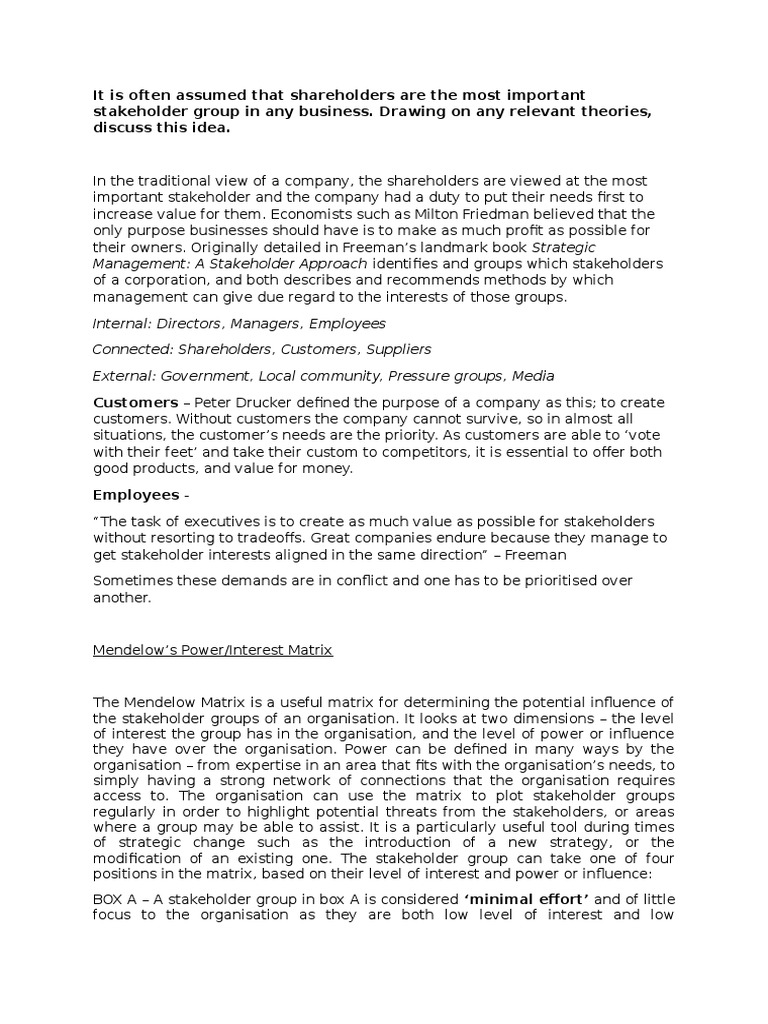Within the realm of contemporary economic paradigms, a palpable tension exists between the traditional mandate of profit maximization for shareholders and the burgeoning philosophy of stakeholder engagement. Bahá’í teachings, with their innate emphasis on unity, equity, and service to humanity, illuminate a path forward that transcends the conventional business model. This transformative perspective invokes curiosity and promises a seismic shift in how we conceive of value creation. Exploring the implications of these teachings reveals a compelling narrative, poised to redefine the essence of business in the modern world.
At the crux of Bahá’í philosophy is the belief in the inherent oneness of humanity. This principle serves as a cornerstone for understanding the interconnections between various stakeholders, including employees, customers, suppliers, and the broader community. Rather than viewing shareholders as the predominant priority, the Bahá’í approach advocates for a holistic perspective that recognizes the intrinsic worth of every stakeholder group. Such an emphasis fosters a culture where the success of a business is measured not merely by financial metrics but through its contributions to the collective well-being of society.
Traditional business models, prevalent in today’s corporate culture, often reflect a myopic focus on short-term profits, which may inadvertently breed an environment rife with competition and discord. Bahá’í teachings propose an antidote: a spiritual business model that prioritizes service and collaboration over competition. By installing ethics and moral responsibility at the helm of business operations, organizations can cultivate an atmosphere conducive to innovation, creativity, and sustainable growth. This realignment positions businesses as integral components of a thriving ecosystem rather than isolated entities chasing profits.
Moreover, the teachings underscore the importance of transparency and accountability within corporate governance. Ethical practices are not mere frameworks to comply with legal standards; rather, they are moral imperatives that resonate deeply with the Bahá’í commitment to justice and equity. Implementing transparent policies empowers stakeholders and fortifies trust in organizational leadership. The realization that decisions must consider the impact on the entire community fosters a sense of collective ownership, resulting in stronger stakeholder relations and, ultimately, enhanced longevity for businesses.
In practice, integrating Bahá’í principles into the corporate ethos involves revisiting the decision-making processes prevalent in organizations. Rather than adhering to hierarchical structures where a select few drive decisions, a more participative model should be envisioned. This model harbors the potential to enliven diversity and inclusion, amplifying a myriad of voices that contribute to the organizational dialogue. Such inclusivity not only nurtures creativity but also cultivates a sense of belonging among stakeholders, driving loyalty and engagement.
The embrace of a stakeholder-centered approach can yield tangible benefits that extend beyond moral imperatives. Companies that adopt these principles discover that fostering strong stakeholder relationships correlates with enhanced brand loyalty, customer satisfaction, and employee morale—factors that ultimately influence profitability. A notable example of this alignment is seen in organizations that actively invest in their communities and prioritize environmental sustainability. The resonance of these efforts often compels consumers to support them, recognizing their commitment to the greater good.
Furthermore, Bahá’í teachings extol the virtues of consultation as a pivotal mechanism in organizational operations. Consultation—a process steeped in humility and a collective quest for truth—encourages open dialogue among stakeholders. By facilitating a space where diverse perspectives are not only welcomed but cherished, organizations can generate innovative solutions to complex problems. This collaborative approach is not merely a tool for conflict resolution; it symbolizes a transformation in how organizations can harness the power of collective intelligence to propel themselves toward success.
Engaging in this shift from enriching shareholders to serving stakeholders necessitates a fundamental reorientation in corporate identity and purpose. Companies are called to articulate a vision that recognizes their role as agents of social transformation. The resultant elevation of purpose invites employees to engage with their work on a deeper level, fostering passion, commitment, and a sense of shared responsibility that transcends conventional definitions of job fulfillment.
As organizations endeavor to adopt these enlightened principles, challenges are inevitable. An entrenched system resistant to change may manifest in the form of skepticism and encountered obstacles. However, in their resilience lies an opportunity for growth. A steadfast adherence to Bahá’í teachings provides the necessary fortitude to navigate the complexities inherent in such transitions. By fostering an ethos grounded in spirituality and service, businesses can emerge as beacons of hope in a world craving transformation.
Looking forward, the implications of embracing a Bahá’í-inspired stakeholder model extend far beyond individual organizations. The ripple effects can foster a cultural shift within the business landscape, inspiring a new generation of leaders dedicated to nurturing a socially responsible economy. As these new paradigms take root, they will cultivate a more just and equitable global marketplace, ultimately enriching humanity as a collective entity.
In conclusion, the integration of Bahá’í teachings into the fabric of business represents not just an operational shift but a profound paradigm shift in how value is perceived and actualized. By redefining success through the lens of stakeholder enrichment, organizations can contribute to a more harmonious, interconnected world. Ultimately, this spiritual business model emboldens a community of stakeholders motivated not by mere profit but by the collective advancement of humanity, demonstrating that the journey toward ethical business practices is indeed a noble endeavor worth pursuing.
